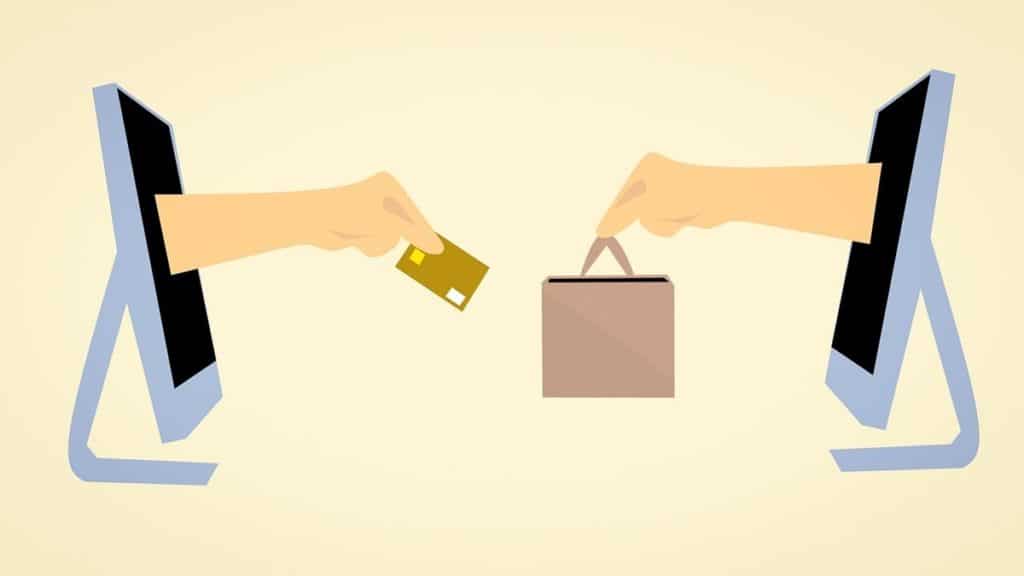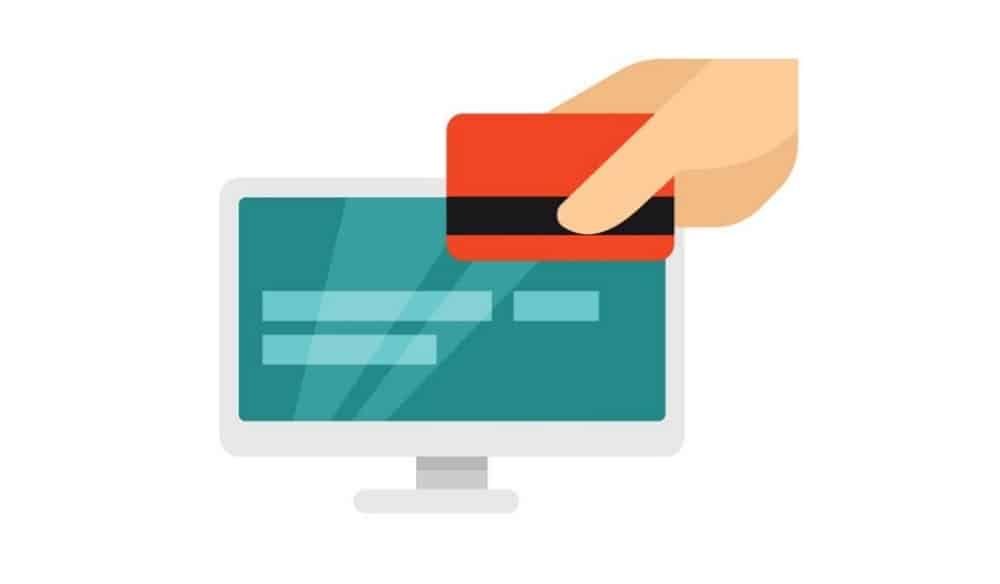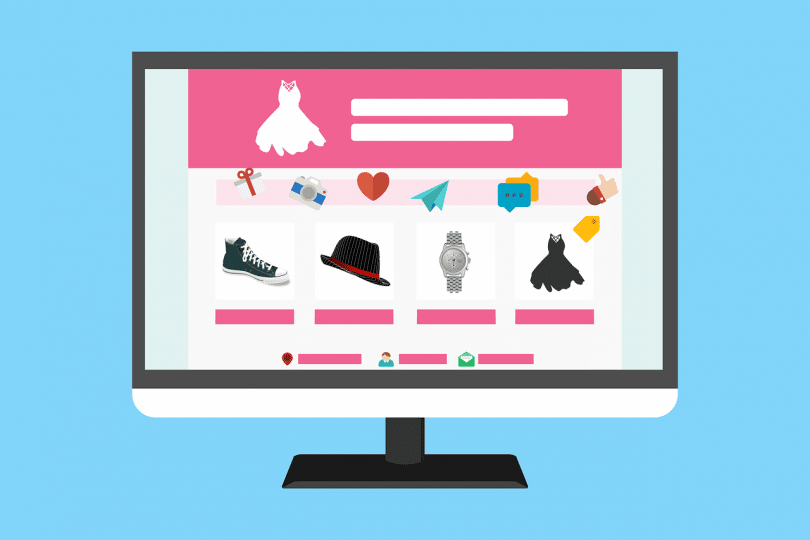Do you consider selling your products and services online? If not, it is time to make that move. You can even choose an online marketplace for that.
The biggest online marketplaces and selling sites generated over $3.25 trillion in 2022. which accounted for 77.5% of total gross merchandise value among the Top 100 companies. That amount of money is tempting for any business.
Benefiting from the help of established online marketplaces is one of the modern business goals of many small and medium business owners. They cannot achieve this type of growth on their own, so proper positioning within online selling platforms can give an exceptional boost to those businesses.
In this guide, we will present you with the six best online marketplaces where you can start selling your products and services. We will also outline information on possible alternatives like store builders and social media.
Best Online Marketplaces and Sites For Selling
The best and fastest way to sell your products and services online is to use marketplace platforms. They have the whole business system already set up and you just need to create your business profile, find clients and start shipping products.
Using online marketplaces to sell your products can offer several benefits for businesses. Here are some of them:
- You start selling on the already trusted platform
- The costs of marketing are significantly lower because buyers already know about the platform – you also get increased brand exposure
- Online marketplaces provide access to wide customers, which increases your sales potential
- Those platforms handle all your payment processes as well as logistic procedures
- Online marketplaces are places where small companies can compete with large ones if they offer quality service
- Increased insight into customer behavior, sales performance, and market trends. Many online marketplaces offer analytic tools you can use to adjust your sales strategies.

Of course, when choosing the best online marketplace for your company, you need to be aware of these downsides:
- Amount of fees these platforms charge for selling – analyze how they impact your profit margin
- Expect a strict set of platform rules you must follow that restrict your flexibility regarding pricing, shipping options, or return policies
- You always need to be prepared to adapt to changes in the platform’s algorithms so your products appear on search (this can be time-consuming)
In the end, your decision is if the benefits outweigh these problems and reduced flexibility regarding direct customer interaction. If you already decided to use online sites to increase sales of your company, here are some of the best online marketplaces you can use.
1) Amazon
Amazon is a global brand you must surely have heard of. It is a starting point for thousands of businesses that operates in over 180 countries, serving millions of customers worldwide
Many statistical indicators point out that Amazon is the world’s biggest ecommerce company. That isn’t much of a surprise, because they implemented several revolutionary ideas into their business concept. Some of them are:
- Amazon revolutionized online shopping with its patented “1-Click” ordering feature
- They pioneered one-day delivery via their Prime service
- They vet sellers and are quick to remove fake products
- Amazon was one of the first to implement personalized product recommendations based on customer behavior and purchase history.
Their approach is completely focused on customers, which is why they have a ridiculously high percentage of consumer retention. Amazon also offers great prices for every group of consumers’ goods.
If you’re looking to sell online, Amazon is among the best marketplaces to do that, especially if you’re looking to reach a broad global audience.
As a seller, you can use Amazon’s professional selling plan tailored for higher sales volumes. It costs $39.99 per month, regardless of the number of items sold, and offers several handy features. Some of them are tools for inventory listing and bulk listing.
2) eBay
eBay is one more well-known site for selling online. It has been active since the mid-’90s, and it is a good chance that you’ve already used it to purchase something for yourself.
The first thing every user notice when using eBay is its famous user-friendly interface that enables anyone to easily navigate through a vast product selection. Because of this interface, eBay became a favorite destination for various sellers and shoppers who seek a diverse range of items.
Probably the biggest trait of eBay is its system of auctions. Although auctions are not suitable for businesses, they attract many customers and consequently increase your reach.
eBay has one of the best platforms for registration and validation, so you can start selling almost immediately. It is recommended to use PayPal as the primary mean of payment because eBay and PayPal have agreements about secure payment protocols. Personal and financial data are completely secured, so your clients can buy products without worry.
Because the focus of this article is sellers, we advise you to keep an eye on these types of fees eBay charges:
- Listing fee: for each product you list on the site
- Insertion fee: for listing the same item in different categories
- Value fee: for the sale of your item (10% of the final total, capped at £250)
Of course, by paying these fees, you get all the benefits of listing on a big ecommerce site. You just need to do a cost-revenue analysis to see if this deal is favorable for your business.
3) Etsy
Do you have a passion for unique handcrafted items and vintage products? The best online network for these kinds of sellers and buyers is Etsy. Launched in 2005, it has created a vibrant community of creative artists and independent sellers who offer a diverse array of unique products.
If you are into this specific niche, making and selling handcrafted jewelry, clothes, or home decoration, you shouldn’t miss Etsy. Besides the place for presenting and selling your work, you will get a dedicated space to showcase your craftsmanship, artistic talent, and creativity.
As for fees, when an online seller is using Etsy, there is a non-refundable listing fee of $0.20 that expires after four months. It will be charged again if the item isn’t sold in the meantime. When you make a sale, Etsy charges a 5% transaction fee taken from the total billing amount (including display price, shipping, and gift wrapping).
4) Newegg
If you are into the tech business and offer electronic products, this platform is a great place for you. Newegg has a worked-out system of promotion that markets user listings among customers in a more direct way. It also provides sellers access to various tools that enable easier listing and shipping of items.
As for charging fees, Newegg has commission fees that vary by category. Usually, it goes from 6 to 15% of the sale price. If you want to set up a professional account, there is a plan for that option and costs $29.95 monthly.

5) Walmart Marketplace
For all US sellers, one of the best online marketplaces is the Walmart marketplace. It already possesses a large customer base that is loyal and accustomed to buying online. It can be a great way for building brand awareness and raising of brand exposure. That will eventually increase your sales.
One more big plus of WM is its analytics system. It contributed to the sales growth of hundreds of companies that employed it properly in their business projections and marketing strategies.
If you decide to set up an online shop at Walmart Marketplace, be ready to be charged with category referral fees (6-20% of the sale price). You can also create a professional account that will cost you $39.00 per month.
6) Nextdoor
If you want to keep your online business locally from the start, you can use this platform. Nextdoor focuses on community selling, and you will have the feeling that you are operating in your own neighborhood.
The biggest advantage of using this online platform is that listing items on it is completely free. You are surely wondering where the catch is. You have to meet the buyer in person. One positive to this is that there is an extra level of protection as users have to register a verified profile before actively using the site.
Selling Online Using An Ecommerce Store Builder
We already listed all the perks of using online marketplaces. Business owners can significantly increase their reach by offering their products and services online. But you can do the same by setting up your online store.
It requires more time to create and attract customers to your website, but it has several crucial benefits why you should at least consider this selling channel:
- You have complete control over your business and pricing strategy
- There are no third-party fees or hidden costs
- You can adjust the store to your needs and the visual identity of your company
- You have more flexibility in communicating with your customers
With the help of online store builders, you can easily create a fully functional sale website and turn it into one of your most lucrative sales channels.
Here is a quick overview of two of the most popular ecommerce store builder – Shopify and WooCommerce. You can use them and create an online store that suits the needs of your business. Remember, when choosing between these two, your personal needs and preferences are decisive factors. Both of these solutions are fantastic ways for creating a brand and selling your products.
Shopify
Shopify is a leading and one of the most recognizable e-commerce platforms you can use. It is favorable among small business owners because of its simplicity.
Shopify offers new users a plethora of useful features:
- Store setup wizard
- User-friendly product management system
- Integrated blogs for promotion
- Social media sales integration
- Numerous customization options
Shopify takes care of hosting, security, and server maintenance, providing a secure and reliable infrastructure for your online store. That means your only concern is to list and sell items from your stock.

WooCommerce
WooCommerce is a comprehensive e-commerce platform that enables companies to build their sales websites and market their products.
Technically, it’s a WordPress plugin, so if you already own a WordPress site, you can integrate this plugin with your theme and start using it immediately. Within this plugin, you will find a range of features and extensions that will improve your web store and increase your sales.
WooCommerce is also easy to use ecommerce store builder, and anyone can set it up properly. Especially because it is a straightforward operation that doesn’t endanger the integrity of the existing site.
Selling Online With Social Media
Social networks have quickly turned from a place to connect people to a place to sell things. That is why every successful company needs to try to utilize social media uses to increase their sales.
This is great news for online businesses because you earn money without paying commissions like you would with a traditional marketplace.
You can set up your online stores on social media, such as Instagram, Facebook, TikTok, or Pinterest, and make use of their features. Some of the best ways to attract customers are:
- Create a Facebook or Instagram page for your store
- Use well-researched hashtags
- Create targeted ad campaigns
- Check out Instagram LIVE shopping
- Promote Augmented Reality (AR) Try-On feature
Selling online on social media is time-consuming, but it is still cheaper than some other channels. If you properly set up and promote your shop on social media, your business will get a boost.
Conclusion
After seeing the best online marketplaces, options for creating your ecommerce site, and how to make money using social media, you are surely convinced that selling online is a great idea. Ecommerce is ever-expanding and offers new ways for businesses to operate online.
Whatever strategy you choose, you will be faced with difficulties, but they can be easily overcome if you are persistent enough. Modern business requires an online presence. More and more people search for items there, and it is only a matter of time when your company will be recognized.
